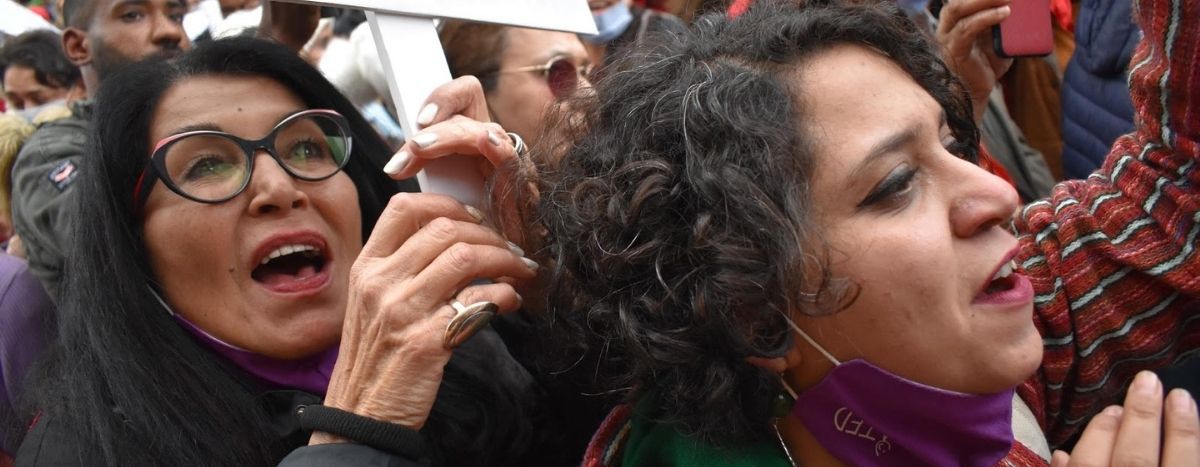
The Tunisian revolution: ten years on, is the dream doomed?
Published on
Translation by:
Sacha SibadeOn 14 January 2011 the Tunisian President Ben Ali fled the country following a single day of mass unrest. After 23 years in power he left behind an angry, fractured nation. Ten years on, despite newly won civil liberties, political Islam is running rampant in the country. Caught between burgeoning democratic ambitions and militant reactionary forces, Tunisia's future is uncertain to say the least.
"We the people demand parliament be dissolved! We the people will tear the regime down!"
It's Friday 18 December and chants are echoing across Tunis's Bardo square. The protest, which was organised by the Tunisian General Workers Union (UGTT), aims to expose the violence and hypocrisy of political Islam, and to "defend the civil state" against the religious elite's manipulation of the poor. The demonstration was set-up as a response to an assault which took place on 8 December, during which three democratic representatives were attacked by associates of Al Karama (an extremist parliamentary coalition with close ties to the religious-fundamentalist party, Ennahdha). Samia Abbou, a parliamentarian who is well-known for being a vocal member of the People's Representative Assembly (ARP), was among the victims. While Abbou came to support the protest she's keeping a low profile. She still hasn't recovered from the incident which happened in the Tunisian Parliament ten days previously and which ended in bloodshed.
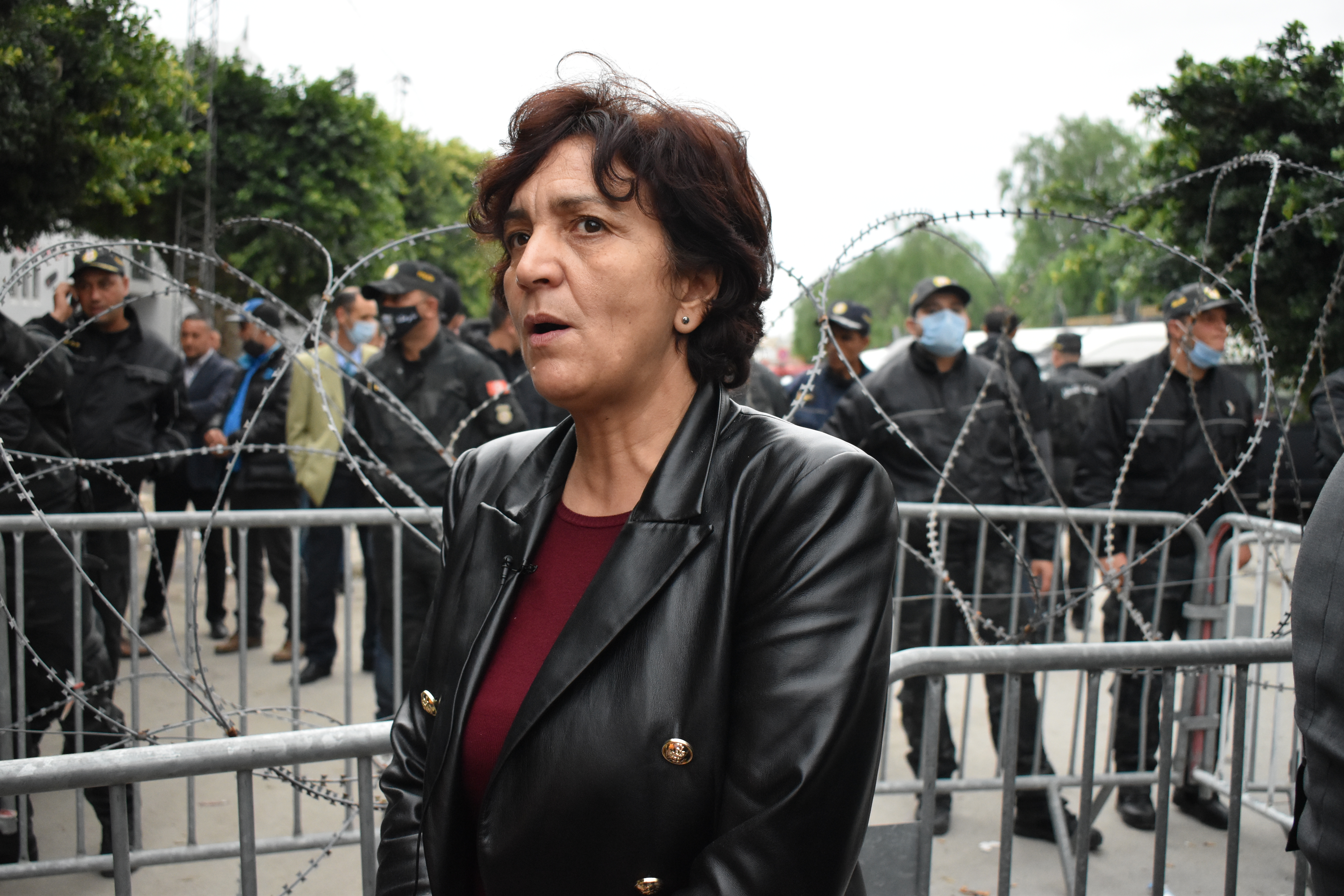
The assaults of that day began in the middle of a 'Women's Commission in Parliament' meeting. The events began with verbal assaults which soon escalated into physical violence. Mohamed Affès, a politician with Al Karma, delivered a speech in which he described single mothers as "whores or raped women". He also attacked women's rights activists, saying that: "for them, women's rights mean single mothers, sex out of wedlock, abortion rights, adultery, debauchery and homosexuality."
According to Al-Bawsala, a Tunisian human rights NGO, violence against the ARP, and female politicians in particular, has been growing since the 2019 parliamentary term began. "Mr Affès has gotten us used to his stigmatization of women by basing his words in Sharia" says Ms. Abbou, deploring "the lack of systematic sanctions" and a "failure to comply with the law." Last year, Rached Ghanouchi, the parliament's President and leader of Ennadha, broke procedural norms by picking a side on the Libyan problem, despite the fact that Tunisia's official stance is one of neutrality.
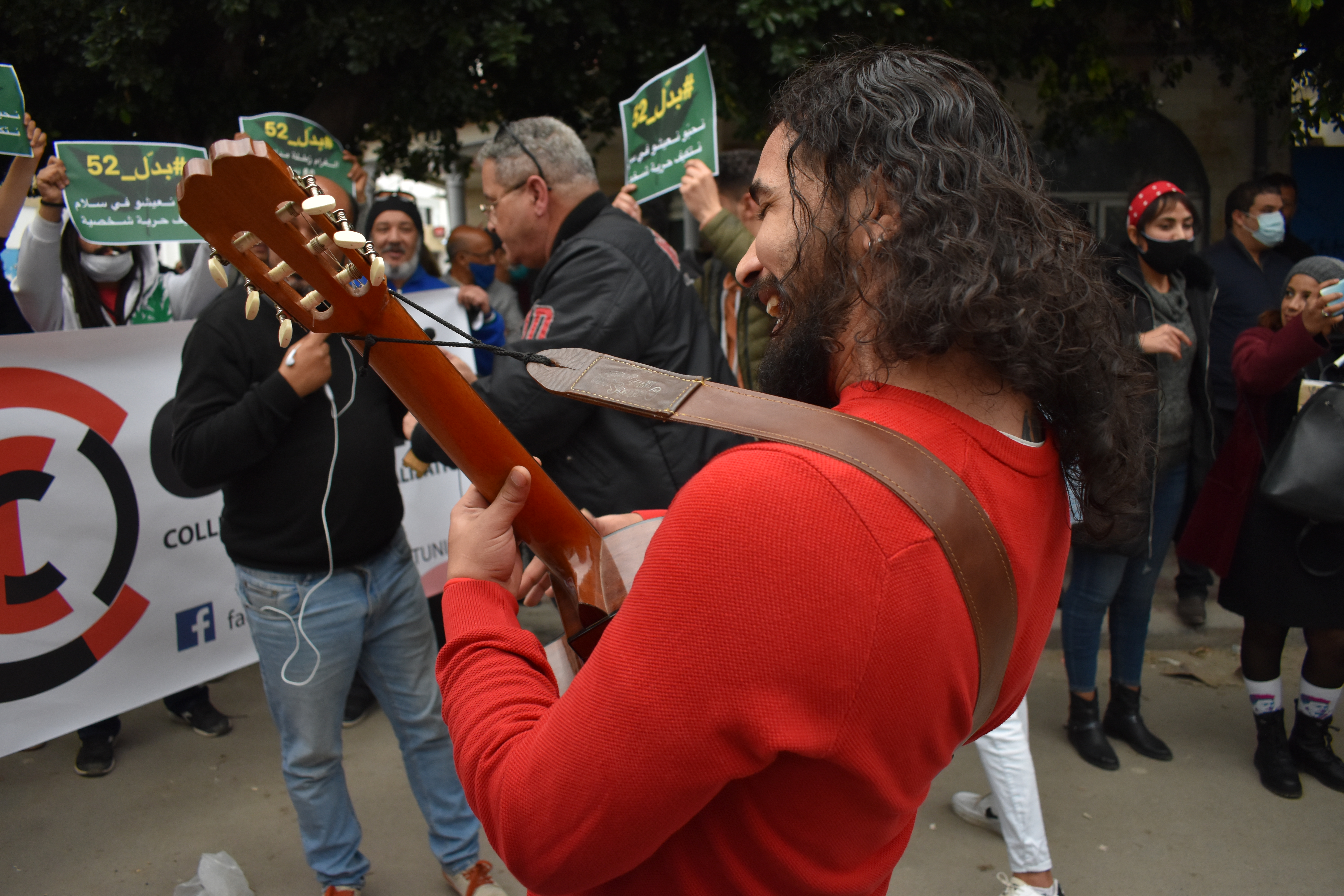
Meanwhile, on the frontlines of the protest, individual citizens like Wafa Khouaja, from the 'Women and Leadership collective', are making their voices heard. "We want real equality, not the semblance of it. This is about obtaining our rights, the ones already embodied in the legislative texts, but which are not realised because of the corruption present in several parts of the State." She points her finger at Ghanouchi and his inertia as well as what she calls a "laissez-faire" attitude on the part of his parliamentarians in the face of the abusive behaviour that takes place.
Not far from Ms. Khouaja, a group of young people from the collective for hemp legalization (COLEC) are chanting slogans against Law 52 which has been in effect since 1992 and which entails "one to five years in prison and a fine between 1000 and 3000 dinars for possession or use of narcotics." This topic has been at the centre of political and social debates in Tunisia ever since the 2011 revolution, which was based, in part, on demands for greater individual liberties.
Today, however, the police do not kettle the pro-cannabis protesters but instead focus their energies on activists from 'Falgatna' (We've Had Enough), an intersectional feminist movement which rejects the norms of the patriarchal State and its "lax attitude towards misogynistic and sexual crimes."
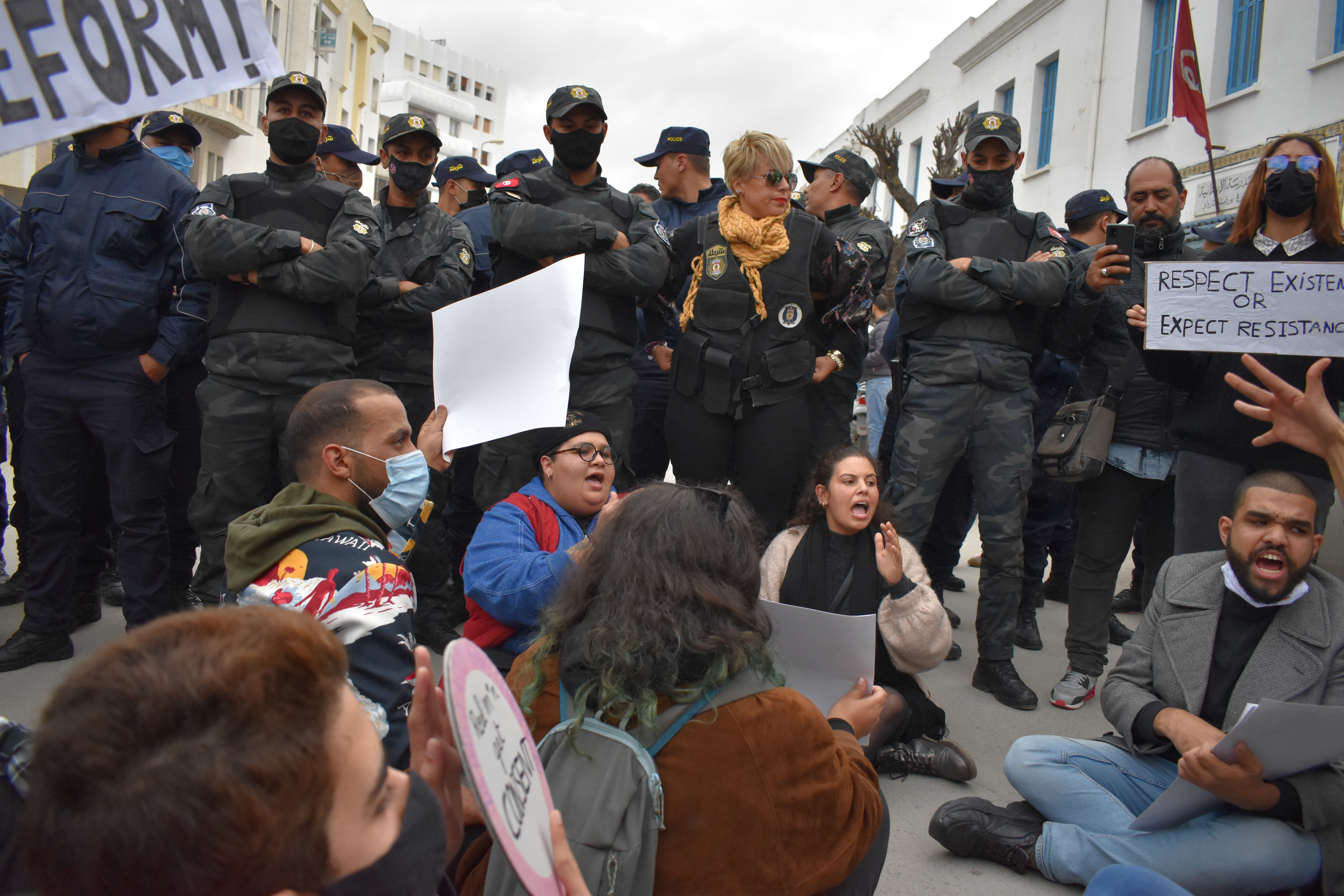
A constitutional fight masquerading as religious debate
Yosra Frawes lights a cigarette on the premises of the headquarters of the Tunisian Human Rights Federation (FIDH) which is located in the swanky neighbourhood of Mutuelleville, to the north of Tunis. Frawes, who has blue streaks in her hair, burgundy lipstick and black-rimmed glasses, is the President of the Tunisian Association of Democrat Women (ATFD) and, as such, is a significant figure in Tunisian society. She was born in Djedeida, a small farming town 23 kilometres from the capital, where "a little girl's fate is to wake up at 5 am to go work in fields that don't even belong to her." Trained as a human rights activist, she is now a business lawyer. She chose this path in 1994 after watching a debate organized by the ATFD about gender stereotypes in Tunisian TV shows. "I saw women completely different to the ones I knew back home. Women who smoked, who didn't necessarily have long hair or blond highlights and, most of all, who were criticizing Ben Ali's regime." Six years later, Frawes came back to her family home asking her relatives to sign a petition in favour of reforming inheritance law to remove inequalities between men and women. "Very few of them did. They said 'Ah! So you're a democrat women who's sold out to France and the Western agenda!" She tells us more about the petition, which, in her mind, signifies a split with a religious logic that "condemns her, for being a woman."
Frawes's preferred frame of reference is the 'personal statute code' which was established during the independence process of 1956. The document, which is aimed at establishing equality between men and women in several areas, breaks away from polygamy, discourages girls from marrying too early and enables the possibility of divorce outside of tribunals. Béji Caid Essebsi, founder and ex-President of the liberal party Nidaa Tounes, used this clause as the legal foundation for a bill which aimed to establish inheritance equality and which he presented to parliament on 13 August 2018, aka Tunisia's Women and Family Day. His idea was to formalise an amendment to the personal statute code, sixty-two years after its creation. At the time the United Nations commended the idea, and the President saw the historic reform as the perfect opportunity to mark his legacy. The parliamentarians, however, argued it would be better to wait, citing the reluctance of the religious-conservative part of society as their justification. The bill was promptly abandoned.
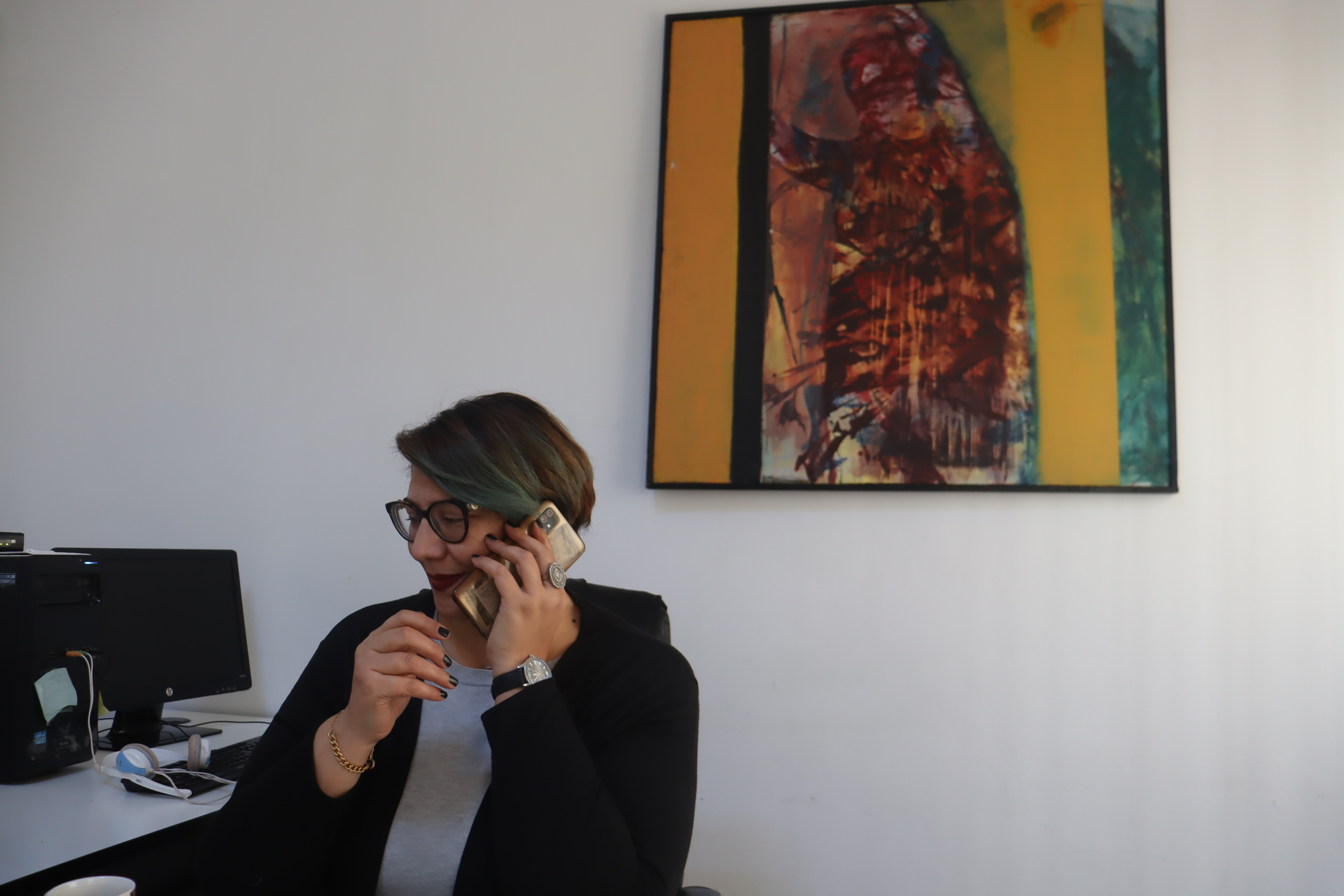
According to Yosra Frawes women's emancipation will only be possible once modifications are made to the legal framework of the personal statute code. "Men have more prerogatives when it comes to children's custody," she says,"on top of being discriminated against at inheritance, women are also undermined from the moment of their wedding, since you have to pay a dowry to marry them. Once paid, women cannot refuse consummation of the marriage." Koranic law, which is used as jurisprudence in Tunisia, states that a woman will only inherit half the sum that a man of the same degree of kinship would. Neither Beji Caied Essebi or his predecessor Habib Bourguiba, who enjoyed real legitimacy, having been the figurehead of the Tunisian independence movement, succeeded in challenging this principle.
"Planned parenthood is in a deplorable condition."
Since the Islamist party Ennahdha took back the political reins in 2016, the human rights activist fears a return to a Religious state. It is a "setback", she says, that hurts women the most. "Now that the Health Department is under [their control], planned parenthood is in a deplorable condition. We've seen a dizzying drop in available contraception." Frawes concludes by explaining that there is "a whole political plan" to increase the birthrate, which can be seen, in particular, in a series of public reports for the National Statistics Institute.
Suspicious financing
"Two coffees please" says Néji Bghouri. He's a regular customer at 'The Queen', one of the many cafés that has opened over the last twenty years in Tunis's Ennasr district. Bghouri was the President of the Tunisian Journalists National Union (SNJT) until last September. Like Yosra Frawes he is a leading figure in the ideological battle against political Islam. Thanks to the revolution the Tunisian media broke free of 23 years of censorship. As a result, the country now has 85 newspapers, 44 radio channels and 17 TV channels. "Unfortunately, however, there is no pluralism in the content. The State hasn't made any real reform of the public media. It's the same commercial model used everywhere," says Bghouri. Ten years after Ben Ali's regime fell, freedom of expression is no longer under threat in a direct sense. What is questionable, though, is the degree of political and economic meddling. On 24 December, for example, Nabil Karoui, an ex-Presidential candidate and stakeholder in the private TV channel Nessma, was arrested on spurious grounds related to his liberal politics. According to article 116 of Tunisia's legal framework, regarding freedom for audiovisual media, this kind of State control over the media is technically forbidden.
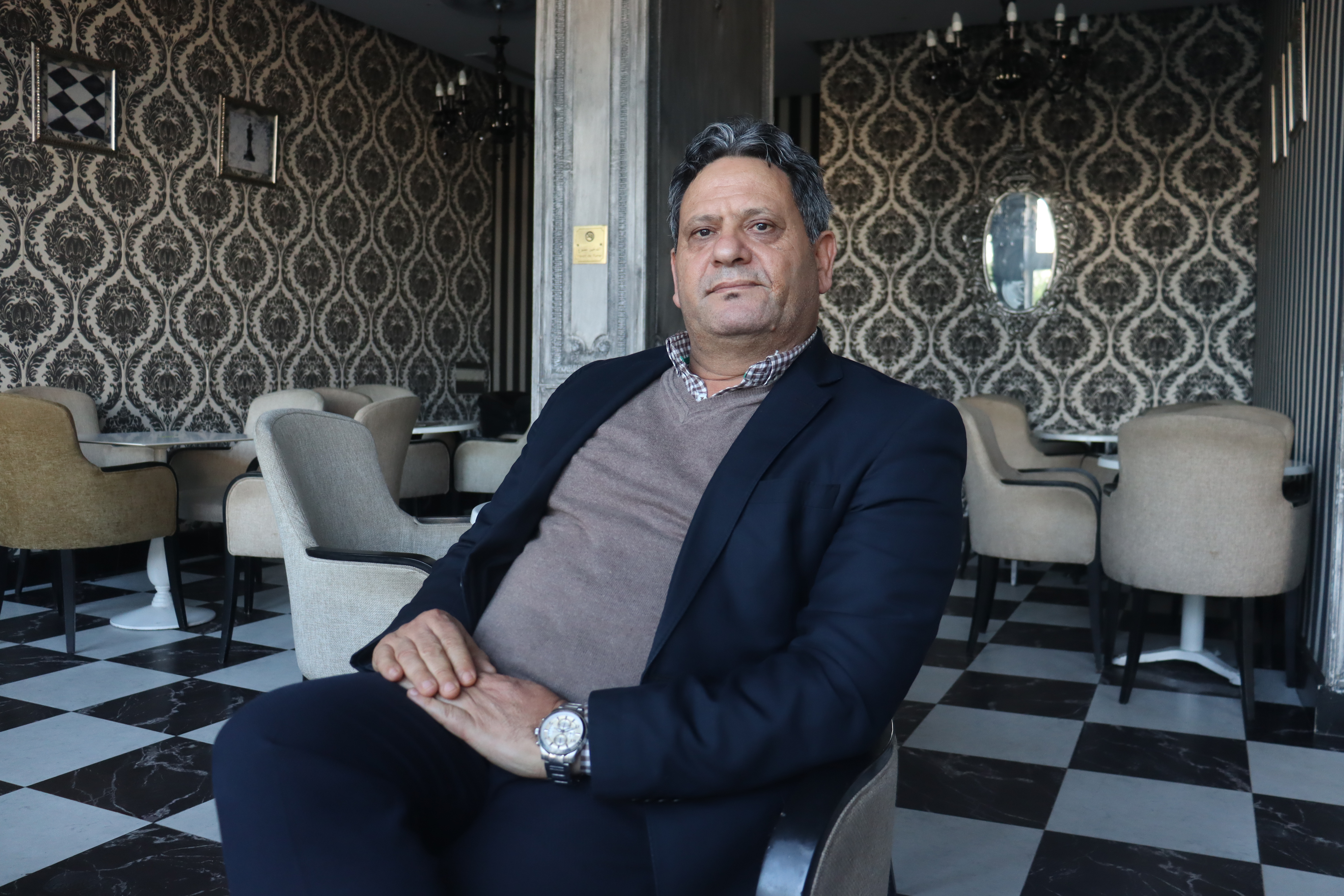
"You cannot talk about freedom of the press or even about democracy when there is political meddling in the media," Bghouri insists. According to the Independent High Authority on Audiovisual Communication (HAICA), the seriousness of this problem can be seen in the obscure financing of several private media companies. "Since 2012, some media have been operating without adverts but also, apparently, without any other revenue," reveals Hichem Snoussi, a member of HAICA. "The Zitouna radio channel runs without a license but it earns about 300 000 dinars per month. Their financing is suspicious," he says. According to Snoussi, foreign capital is propping up some of these activities. "We hear Zitouna pays in legal currency and not from Tunisia. And we have found no transfer of resources done in accordance with the law. Ennahdha protects that radio. But where is the money coming from?"
"You cannot talk about freedom of the press or even about democracy when there is political meddling in the media."
Bghouri and Snoussi both agree that the fight for press freedom won't end until the media stops fraternising with political powers. On 7 December supporters of Saïd Jaziri, a politician who is also the owner of Radio Coran, surrounded the HAICA headquarters protesting the institution's decision to close down the radio a few days earlier. The radio was breaking the law and had already been penalized in January 2020 for inciting violence, and a potential assassination, against the agriculture secretary. "Members of HAICA need to be protected," says Mr. Snoussi as he tells us about the institution, and how it has been branded an "enemy of God" by Saïd Jaziri. Mr. Bghouri himself was put under protection after he received a death threat in 2013.
Ten years since the start of the revolution Tunisian democracy has been weakened by a political paralysis which is itself a reflection of socio-economic difficulties. While the 2014 Constitution enshrines fundamental liberties, the implementation has not evolved at the same pace. Yosra Frawes draws the same conclusion about gender equality. "Have you ever seen a woman working for the post office? Or for STEG (theTunisian Electricity and Gas Company)?" According to the latest national survey from 2015 the gender pay gap at the hiring stage is at 25%. Frawes explains that this is a consequence of the fact that many job offers require having previously undertaken military service, a "requirement that pushes women aside."
It's not only the jihadist threat, the deadly wave of terrorist attacks in 2015, and the unprecedented social and economic decay that Tunisians have to worry about. The future of the country's civil and democratic identity is now at stake. For Hichem Snoussi the only response can be a double or nothing gamble. There is, as he puts it, "no future for Tunisia outside of a civil and democratic state."
Cover image: Ghofrane bel Haj Haissa. All rights reserved.
See also: que reste-t-il de la révolution tunisienne ? Retour à Sidi Bouzid (French only)
Translated from Révolution tunisienne : dix ans après, un rêve toujours condamné ?



